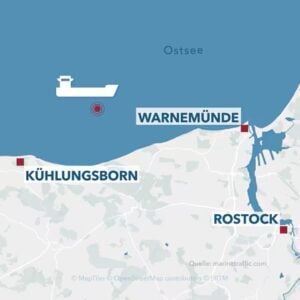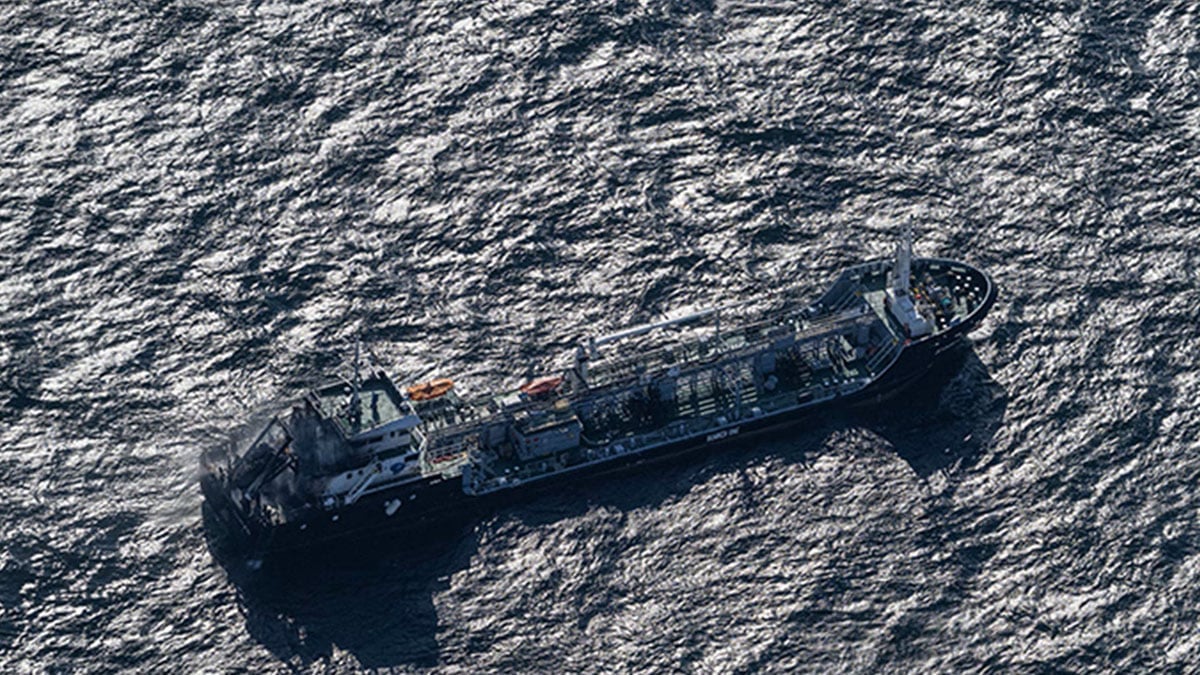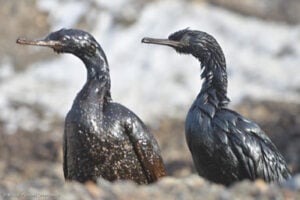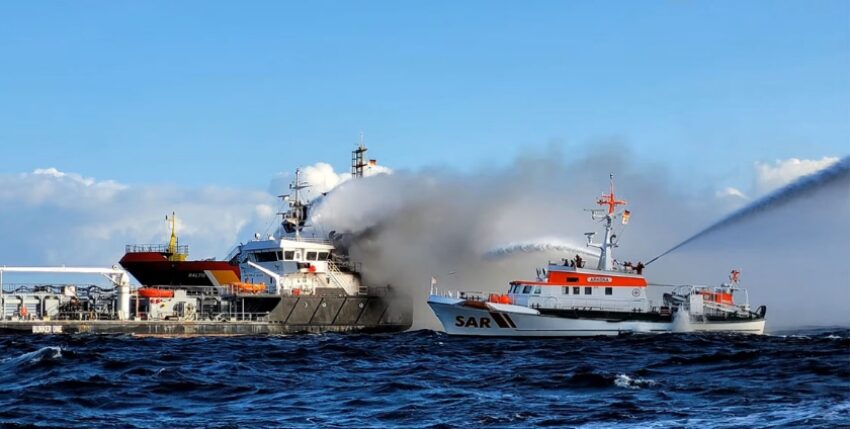According to NDR, fire investigators and police in Rostock harbour have largely completed their investigations into the wrecked coastal tanker "Annika". The Federal Bureau of Maritime Casualty Investigation (BSU) announced that the results will now be analysed and summarised in a report; however, it will probably take more than a year before the report is presented. The investigation will focus on where and why the fire occurred and how such situations can be avoided in future. The BSU categorises the incident as a "serious marine casualty". According to experts, this ship fire shows once again the dangers for the Baltic Sea ecosystem.
All seven crew members were rescued from the ship by the German Maritime Search and Rescue Service (DGzRS) and treated in hospitals. According to the Rostock district, several crew members had inhaled smoke gas. The seamen are now being looked after by the German Seamen's Mission and are receiving psychosocial care if necessary.
Review
On Friday morning, 11 October 2024, a fire broke out in the engine room of the cargo ship loaded with 640 tonnes of oil a few nautical miles north-east of Kühlungsborn for as yet unexplained reasons. After initial extinguishing work, the 73-metre-long "Annika" was brought into the port of Rostock by tugboats and completely extinguished by Saturday morning.

According to Havariekommando Cuxhaven, the fire apparently engulfed the entire stern of the ship. However, the cargo was not affected. For tactical reasons, it was decided to continue fighting the fire from shore at a berth. According to the CCME, there were better opportunities for extinguishing the fire in the harbour than on the open sea.
After the affected ship structures had cooled down and the ship had been tested smoke-free, investigators began their search for the cause of the fire. The "Annika" is secured in the overseas harbour. The fire brigade has set up an oil barrier as a precautionary measure. During an inspection of the underwater hull by divers, no abnormalities were found, such as deformations or colour changes on the hull.
Shipping company
The oil and chemical tanker, which was built in Wismar in 2012, sails under the German flag and belongs to the fleet of Hans Rinck GmbH und Co KG, based in Lower Saxony. As a company spokesperson explained when asked by NDR Mecklenburg-Vorpommern, employees of the company have not yet had access to the ship. The extent of the damage is therefore not known.

First evaluation
An expert involved in the salvage work reported a possible deflagration due to a burst fuel line in the engine room, which caused the paint load (storage room for paints and varnishes) to catch fire. The investigations would now have to show this.
Only one fire watch and one line watch were currently on board.
Daily threat
The Director of the Leibniz Institute for Baltic Sea Research Warnemünde (IOW) expressed his relief at the rapid rescue operation in the Baltic Sea. Such a situation is worrying and the danger continues to exist. A good 2,000 ships with dangerous cargo or fuel in their tanks are travelling in the Baltic Sea day and night. These include tankers with up to 100,000 tonnes of cargo. We need to think about how much shipping traffic is wanted in the Baltic Sea, said the director of the IOW in the NDR interview.
Consequences
Such accidents are rare, but a single ship laden with oil is enough to cause lasting disruption to ecosystems. This was also the reason for the establishment of an accident command in 2003, triggered by the Pallas disaster. The wooden freighter "Pallas" caught fire with over 750 tonnes of oil on board in the Schleswig-Holstein Wadden Sea in October 1998 and could not be secured in stormy weather. One crew member died. The ship finally ran aground south-west of the island of Amrum. The wreck still lies there today in about six metres of water. The fire was only finally extinguished four weeks later. An oil slick several hundred metres wide and around 20 km long cost the lives of thousands of seabirds.

Since then, the joint federal and state organisation has been coordinating operations in the event of serious shipping accidents in the North and Baltic Seas. Accidents cannot always be prevented, but clearly structured responsibilities are helpful, according to the lessons learnt from the Pallas disaster.
You can find further information, also for listening, under the following link:
Fire on oil tanker "Annika": Investigations completed
kdk, NDR








